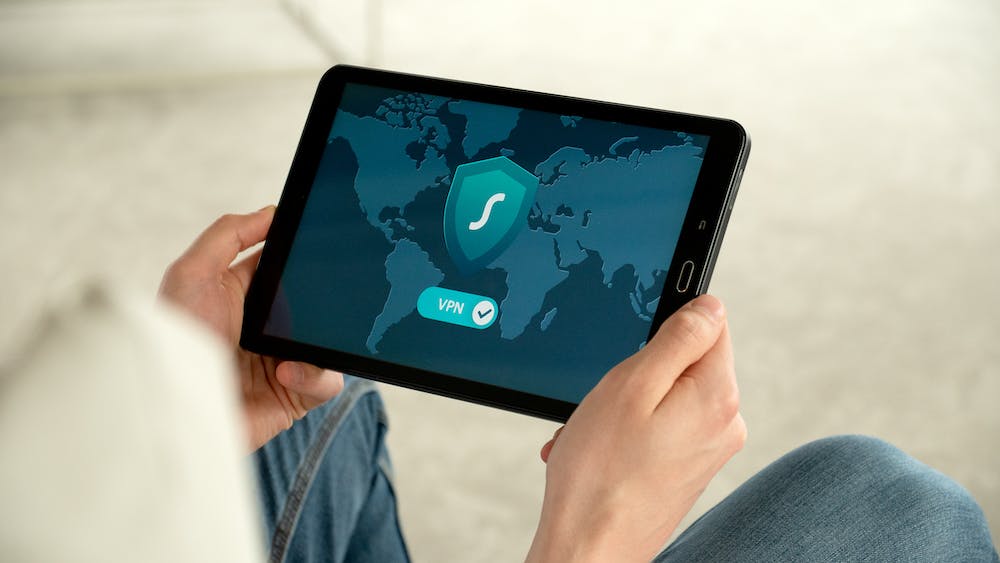7 Ways to Keep Your Home Safe from Cyber Attacks
 Cyber attacks are not only a threat to businesses and governments, but also to ordinary people like you and me. Hackers can target your personal devices, your home network, and even your smart appliances to steal your data, spy on you, or cause damage. Here are some simple tips to protect your home from cyber attacks.
Cyber attacks are not only a threat to businesses and governments, but also to ordinary people like you and me. Hackers can target your personal devices, your home network, and even your smart appliances to steal your data, spy on you, or cause damage. Here are some simple tips to protect your home from cyber attacks.
 1. Use strong passwords and change them regularly. A weak password is an easy way for hackers to access your accounts and devices. Make sure you use a different password for each account and device, and avoid using common words or phrases that can be guessed easily. You can use a password manager app to generate and store strong passwords for you.
1. Use strong passwords and change them regularly. A weak password is an easy way for hackers to access your accounts and devices. Make sure you use a different password for each account and device, and avoid using common words or phrases that can be guessed easily. You can use a password manager app to generate and store strong passwords for you.
 2. Update your software and firmware. Outdated software and firmware can have security vulnerabilities that hackers can exploit. Make sure you update your operating system, apps, browsers, antivirus software, and any other software you use regularly. Also, check if your router, modem, smart TV, smart speaker, or any other smart device has the latest firmware version.
2. Update your software and firmware. Outdated software and firmware can have security vulnerabilities that hackers can exploit. Make sure you update your operating system, apps, browsers, antivirus software, and any other software you use regularly. Also, check if your router, modem, smart TV, smart speaker, or any other smart device has the latest firmware version.
 3. Install a firewall and antivirus software. A firewall is a software or hardware device that blocks unauthorized traffic from entering or leaving your network. An antivirus software is a program that detects and removes malware from your devices. Both are essential tools to prevent cyber attacks and keep your data safe.
3. Install a firewall and antivirus software. A firewall is a software or hardware device that blocks unauthorized traffic from entering or leaving your network. An antivirus software is a program that detects and removes malware from your devices. Both are essential tools to prevent cyber attacks and keep your data safe.
 4. Secure your Wi-Fi network. Your Wi-Fi network is the gateway to your home devices and online activities. If it is not secured properly, hackers can easily access it and compromise your security and privacy. To secure your Wi-Fi network, you should:
4. Secure your Wi-Fi network. Your Wi-Fi network is the gateway to your home devices and online activities. If it is not secured properly, hackers can easily access it and compromise your security and privacy. To secure your Wi-Fi network, you should:
 – Change the default name and password of your router
– Change the default name and password of your router
– Enable encryption (WPA2 or WPA3) on your router
– Disable remote access and UPnP (Universal Plug and Play) on your router
– Use a VPN (Virtual Private Network) service when connecting to public Wi-Fi networks
 5. Be careful with phishing emails and links. Phishing is a type of cyber attack that uses fake emails and websites to trick you into revealing your personal information or downloading malware. To avoid phishing, you should:
5. Be careful with phishing emails and links. Phishing is a type of cyber attack that uses fake emails and websites to trick you into revealing your personal information or downloading malware. To avoid phishing, you should:
 – Check the sender’s address and domain name carefully
– Check the sender’s address and domain name carefully
– Look for spelling and grammar errors in the email
– Hover over the links before clicking them to see where they lead
– Never open attachments or click links from unknown or suspicious sources
 6. Educate yourself and your family about cyber security. Cyber security is not only a technical issue, but also a human one. You and your family members should be aware of the common types of cyber attacks, the signs of a compromised device or account, and the best practices to prevent them.
6. Educate yourself and your family about cyber security. Cyber security is not only a technical issue, but also a human one. You and your family members should be aware of the common types of cyber attacks, the signs of a compromised device or account, and the best practices to prevent them.
 7. Backup your data regularly. In case of a cyber attack, you may lose some or all of your data due to encryption, deletion, or corruption. To avoid this, you should backup your data regularly to an external hard drive or a cloud service. This way, you can restore your data if something goes wrong.
7. Backup your data regularly. In case of a cyber attack, you may lose some or all of your data due to encryption, deletion, or corruption. To avoid this, you should backup your data regularly to an external hard drive or a cloud service. This way, you can restore your data if something goes wrong.

